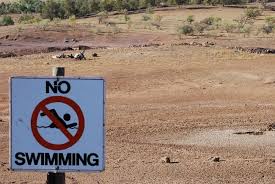California drought fears ease, don’t vanish, with rain
Published on April 15th, 2016
Jeremy B. White
April 13, 2016
The Sacramento Bee
A wetter winter has dampened Californians’ anxiety about the drought, though large majorities remain deeply concerned about ongoing water shortages and committed to consuming less.
OBVIOUSLY THE HIGH POINT OF PUBLIC CONCERN WAS BACK IN OCTOBER, PRIOR TO THE CURRENT RAINY SEASON.
Field Poll director Mark DiCamillo
Well over half of California voters dubbed an enduring lack of water a major problem, with 62 percent of Field Poll respondents calling the state of affairs “extremely serious.” But that still marked a sharp decline from October of 2015, when 76 percent of Californian voters called the drought extremely serious.

Last year, signs pointed to a drought of historic severity. In April of 2015 Gov. Jerry Brown strode across a Sierra Nevada meadow that was bare of crucial snow as a backdrop to his ordering the first mandatory water cutbacks in California history.
Conditions have since improved. Snow has returned to the Sierras, with state officials announcing in March that snowpack had accumulated to just below an average level. Critical reservoirs have filled to 85 percent of their historical average. After initial success in meeting the 25 percent cutbacks mandated by Brown,Californians have fallen short in five consecutive months stretching back to October.
As water levels have risen, interest in conservation has dropped. Around three-quarters of voters surveyed in the Field Poll, a huge majority, called curtailing water use “very important.” But that 74 percent figure was down from 81 percent in October. The share of people who called conservation not important, though tiny, ticked up slightly.
Still, the poll found indicators of shifting behavior. An overwhelming 86 percent said they planned to limit their water consumption even after the drought ends. Nearly all, 90 percent, called upgrading to more water efficient toilets and appliances somewhat or very important.
“It appears to me that the severity of this particular shortage was of such a degree that it’s changing peoples’ minds in a more or less permanent way about how they’re using water,” DiCamillo said.
But fewer voters are eager to uproot their grass. Just 45 percent called it very important to switch from lawns to more drought-tolerant landscaping, down from 55 percent in October. The state has sought to entice more people to make the change by offering rebates, and lawmakers have passed legislation to ensure people won’t be prevented from going to artificial turf.
FIXING PEOPLES’ SPRINKLERS IS A DROP IN THE BUCKET.
Patrick Coughlin, Lathrop resident who called changing lawns and appliances “not too important”
“It’s a bigger deal for consumers to make changes to their external landscape than it is to just upgrade to a more efficient model, whether it’s a toilet or a washing machine,” DiCamillo said. “I think it’s a bigger hurdle for homeowners to take that step.”
While Central Valley residents were more likely to say they had been strongly affected by drought, they were less likely to favor shifting to less water-reliant landscapes or toilets or to say it’s important for residents to continue cutting water use.
Patrick Coughlin of Lathrop said he has “cut way back” on watering his law and refrained from planting anything new, and he told pollsters he would permanently reduce his personal use. But he believed more efficient appliances or landscaping changes are unimportant when weighed against the more consequential actions of large water agencies.
“There’s too much money involved in water right now, and that’s where the problem is,” said Coughlin, who is 52. “Fixing peoples’ sprinklers is a drop in the bucket.”
Similarly, Stockton resident Bertha Jackson said she has stopped washing her car or doing small laundry loads and that her front lawn has been “destroyed” for want of water. But she said she feels discouraged because her water bill hasn’t changed.
“All the efforts I’m doing are not showing up,” Jackson said, and that apparent futility – not to mention the cost of a new washing machine – gives her little motivation to invest more in conservation, since “the utility company and the water company are gonna find a way to try and increase the amount of your bill, but they won’t reduce the way the water is being used.”





